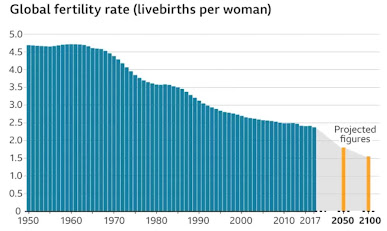Disclaimer: I am no expert on crypto currency or the blockchain technology underlying it, but I do have 45 years of experience in a world driven by technological change and hype.
Part of the early allure of crypto currencies like bitcoin was the idea that they could replace and improve upon the existing financial world of banks, currency exchanges, and other financial service components that were seen as bureaucratic, costly and archaic. Blockchain technology offered the tantalizing prospect of money flowing in the world without third party inconvenience and control. The technology would allow two entities to exchange funds directly with an assured chain of custody and security that would be impervious to fraud, theft or scrutiny.
To me this type of perfect world hypothetical is reminiscent of so many of the software technologies that I saw come and go over the last 30 years. And like so many of its predecessors, the blockchain technology that launched the crypto coin world does indeed have some very attractive features. It promises to allow transactions to be conducted in complete security with an impenetrable and unalterable ‘ledger’ or chain of custody.
But the immediate application of this super-hyped technology to a form of currency unleashed a torrent of speculation and get-rich schemes evangelized by messianic tech wizzes and, later, various famous talking heads.
A currency utilizing blockchain technology and avoiding standard banking and financial markets may seem blissful to many stick-it-to-the-man types, but it doesn’t take a lot of insight to realize that there is a reason for financial markets and regulating organizations. When there is no referee at all, the game becomes wildly chaotic and is easy prey for the most unscrupulous characters – the drug gangs, the scam experts, the tax-cheats, the porn industry, the con artists. It also becomes one huge pyramid or ponzi scheme.
The human notion of 'value' is strange and abstract in many ways. Gold and art are traded as 'fungible' items but their value is purely a construct of human imagination. Food, shelter and clothing have value that is at last partly based on actual utility. Currencies are also constructs, but they have utility as a means of facilitating commerce and exchange. When they change radically it is typically because the country associated with that currency (and guaranteeing it) is experiencing economic problems.
How in the world can one believe that a currency rising and falling as wildly as cryptocurrency can become a trusted means for normal commerce? While it is true that all currencies, and for that matter all things that we put a price on, have a value that is tied to a perceived worth, the world currencies at least have a basis for their valuations – the economic and political systems that back them up. A crypto currency has nothing but the lemming-like tributes from true believers and a pseudo-techie aura of inevitability. And FOMO can only go so far in sustaining a fad or a movement. At some point reason must prevail.
Is there a role for blockchain technology? Definitely! There are many transactions that would benefit from being conducted through blockchain. And there is definitely money to be made in a more traditional sense by investing in the technology itself and earning real world profits as it finds means to provide a service.
But in my view, using blockchain to move money would create more problems than it would solve. We already have rapidly growing inequality of wealth and income in the world. Crypto currency would make financial dealings and wealth accumulation even more opaque than they are now, making it significantly more difficult for nations and municipalities to tax and monitor the situation. We may all hate the bureaucracy and intrusive nature of taxes, but imagine a world that no longer has the ability to monitor and redistribute wealth for purposes of social progress, infrastructure development, education and healthcare.
Technological bandwagons are very seductive, because they lend an air of sophistication to their promoters and create a fervent desire for others to become part of the in-crowd. It is so easy to compare each new idea to past technologies that made millions for those who were courageous and wise enough to embrace them. Toss in a lot of technobabble and concepts that most people don’t really understand, and you have a perfect scenario for conning millions out of their hard-earned savings.
And like all pyramid schemes, the stories of fantastic earnings by the few at the top of the pyramid are enough to pull in the hordes at the bottom. But at some point, the magic fades and the music stops. It is only a matter of time.


